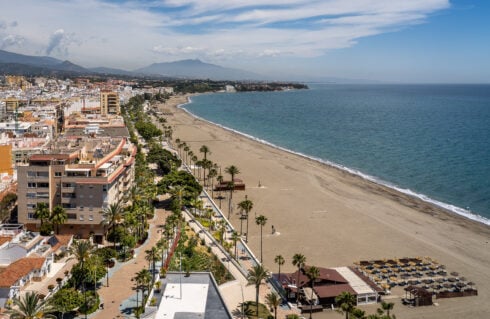I HAVE previously written about the lack of regulation and professionalisation in the real estate brokerage sector.
Outside of Catalunya and Valencia, Spain is basically a Wild West free-for-all. Anyone with a mobile phone and an email address can call themselves a real estate agent.
By contrast, in Catalunya and Valencia, estate agents are required to have training and carry liability insurance, amongst other requirements, including mandatory registration.
There had been talk at the national level of implementing national standards, during the process of drafting the 2023 housing law. However, those discussions went nowhere, and all regulatory standards were suddenly taken off the table. Nothing has changed since then.
As we noted at the time, this was very problematic. We wrote then:
As Gomez [head of the Federation of Associations of Real Estate Companies (Fedei)] noted in the interview, the industry must be professionalised as it now represents 12% of GDP, or €42,000 million. There are between 25,000-30,000 real estate agencies employing probably 90,000 salespeople.
“…it cannot be that anyone who arrives without knowledge or experience in the sector can begin to sell houses…”
Interestingly, the real estate industry in Dubai, which is much less mature in terms of years of development, including its openness to foreign investors, has developed a much more rigorous and transparent real estate framework.
Operating under the Dubai Land Development agency, the Real Estate Regulatory Agency (RERA), provides several clear criteria for the responsibilities and rights of real estate agents and brokerages. These are published by the agency as a Real Estate Brokerage Practice Guide, that is downloadable as a PDF.
The details are also available on a number of real estate websites within Dubai. Dubai has a very strong real estate sector that has been growing over several years and is projected to continue into the future.
“Dubai is welcoming over 8,000 new residents each month, and in most projects, demand exceeds supply, leading to quick sales of correctly priced ready properties, often within four weeks of hitting the market,” Provident Estate noted.
Engel & Völkers Middle East reported a 13.2% annual increase in ready property transactions and a 14.57% price rise in the first half of 2024 compared to the previous year.
There are many similarities with the Costa del Sol market that we can recognise – year round sunny weather, good infrastructure overall, and competitively priced real estate even after years of price growth.
In addition, to their credit, they have developed the regulatory system mentioned above. This extends to development and construction more generally, as well as landlord-tenant law, but also to real estate brokerage regulation.
As with Catalunya and Valencia, agents must be trained and certified in Dubai. They must also be registered with the RERA. Failure to maintain qualifications through regular training or in the case of falling standards, sabbaticals from economic activity, or breaking the law, will all lead to suspensions, fines or blacklisting.
To prevent a booming market being a magnet for shady types seeking to take advantage of naive foreign investors, they have also implemented other important regulations. There is, for instance, a ‘three broker rule’ and mandatory, written representation contracts. The three broker rule stipulates that a seller can’t list with more than three brokerages.
Representation contracts insist that no agent or brokerage can act as agent to a seller without their express written consent. Only agents with a written contract get paid by the law.
This eliminates the practice often seen on Spanish websites like idealista.com of a dozen or more agencies posting photos and ads for the same property – often without the knowledge of the seller.
These representation contracts must also be logged with the RERA so that they can be tracked. This is used to prevent a practice we’ve previously written about, where agencies keep properties posted that are either sold already or were never represented by them in the first place – a kind of bait-and-switch.
To ensure that ads are legitimate and still valid, they are monitored. Failure to remove out of date ads will lead to a fine of over €12K in the local currency. This system is strictly enforced with fines levied against 30 companies in February after agencies were given three days to remove outdated listings. A total of 256 fines were levied for advertising violations of various kinds by July 2024.
In May of this year, the RERA encouraged real estate web platforms to integrate their listing system with that of the the RERA, to avoid fines and fake listings.
Not surprisingly, the Dubai real estate sector welcomes these regulations. It hurts everyone’s credibility and the overall business climate when there are sharks and fly-by-night operators.
In addition to the above best practices, I would add that real estate agencies also ought to be obligated to maintain a certain amount of money in escrow. And, as in Catalunya and Valencia, agencies should be obliged to carry at least €600,000 in liability insurance. They should also be required to maintain a physical office.
FALSE FREELANCERS
I should note that it’s not all negative news about Spain in general and Andalusia in particular. One of the areas where agencies have both competed unfairly against others – and actively broken labor laws – has been in the use of “falsos autonomos”. These are sales agents who are labeled as freelancers for tax purposes and to avoid associated costs of regular employment. However, they are treated as employees by the agency.
Since earlier this year, the Ministry of Labour has been cracking down on this practice in the real estate sector. In an interesting post by a labour law blogger, he notes all of the various ways that agencies treated these “freelancers” as employees, and which the Ministry used to force brokerages to convert them to employees.
It might be stated that this imposes an undue hardship on small real estate brokerages but, frankly, if you can’t follow the law and meet some minimum standards, you should not be expanding your business. It is unfair to those of us who do follow the rules, and it also undermines the quality and credibility of the industry. Unpaid agents are far more likely to leave, creating churn that leaves clients in the lurch. From day to day they could face someone new who doesn’t know their property or goals. Allowing “false-freelancers” also has other negative effects that need to be addressed.
For one, it prevents the professionalisation of the industry. Some brokers not only don’t provide any job guarantees or social security provisions, but they also impose post-contractual non-compete clauses. That means an agent is tied to the agency or forced to stop being an agent – or risk high fines. Experienced agents are thus lost in the process. Secondly, if brokerages can sign up any number of agents without any qualifications or financial obligations, it creates a negative incentive towards “boiler room operations.” By this, I mean that these effectively unpaid sales agents are incentivized to tell clients anything to try to make the sale. If brokerages have to pay their agents, they will focus on quality over quantity. They will focus on proper training.
This push to eliminate false freelancers is a good start but much more needs to be done to really clean up the industry. None of it should be controversial and, given the importance of real estate to the Spanish economy overall, should be a priority.
Adam Neale is the owner of Terra Meridiana, a real estate agency based in Estepona on the Costa del Sol covering areas such as Marbella, Estepona, Sotogrande and Benahavís. Adam has more than a decade of experience in the sales and rental markets and, as Property Insider for the Olive Press, will be providing useful advice for buyers, sellers, tenants and all those interested in living in southern Spain. You can contact Adam by phone at +34 951 318480, pay a visit to his office at 77 Calle Caridad, 29680 Estepona (Málaga) or just visit his website at www.terrameridiana.com
Click here to read more Adam Neale: Property Insider News from The Olive Press.








